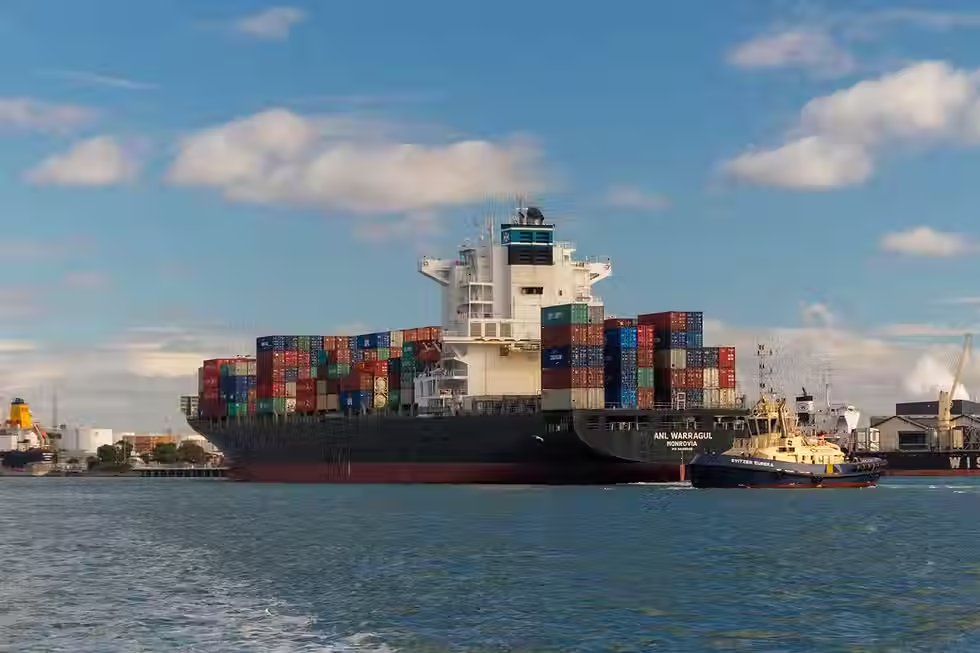Who Needs an Import Permit in Singapore? Here’s What You Should Know
- declarationnexus
- Sep 4, 2024
- 3 min read
Updated: May 6, 2025

If you are planning to move goods into Singapore, you must know if an import permit is required or not. It's not just about rules, this whole permit acquisition process is meant to ease your importation process. This is particularly vital for all types of business, from small business owners to large corporations, everyone must comply.
In this blog post, we will help you understand the process and requirements of the different kinds of import permits in Singapore so that you will be prepared and equipped in this part of trade. Let’s go ahead and find out what you need to be effective with and within the laws.
Understanding Import Permits in Singapore
What exactly is an import permit in Singapore? The import license you obtain empowers you to bring in goods or products in the country in which many or certain products per standards and regulations are essential. Depending on the type of product–be it computer products, beauty products, industrial items or heavy engineering construction equipment, one has to have an import license. Keep this in mind as we explore who really needs these permits.
Who Needs an Import Permit in Singapore?
1. Businesses Importing Commercial Goods
Whether you're a solo entrepreneur or a multinational corporation, if your business involves importing goods for sale or production, you’ll likely need an import permit. This applies across the board—from fashion retailers to hardware suppliers—ensuring that all commercial imports adhere to Singapore's stringent trade regulations.
2. Importers of Controlled and Restricted Items
Importing sensitive items like alcohol, tobacco, or pharmaceuticals? Singapore mandates import permits to regulate these goods. This strict oversight helps prevent illegal trade and ensures public safety.
3. Entities Engaged in Re-Export and Transshipment
If your business involves importing goods only to send them elsewhere, don't overlook the need for an import permit. This requirement holds, even if these items won’t directly enter the local market, safeguarding against illicit trading activities.
4. Temporary Imports for Specific Uses
Need to bring in items temporarily for events or demonstrations? You’ll need a temporary import permit. This is crucial for goods used in exhibitions, product samples, or even testing equipment, ensuring they comply with local laws during their short stay.
Tips for Smooth Import Permit Application Process

It does not matter whether you operate an independent store or run a multi-national chain, if you are in the business of bringing products to sell or manufacture, then it is most likely that you will require an import permit. Applicants include everyone, from fashion stores to hardware store owners, which is why all commercial imports comply with the trade policies of Singapore, which are strict.
Provided you come prepared, finishing the import permit application does not have to be hard. It is possible to apply and obtain documents and permits faster by employing the following measures:
Collect all relevant papers such as Legalized Document for exports. It is important to bring along any legal phots or papers that are essential in order to complete the task as follows – contracts, Bill of materials form, pictures of the cargo units, etc.
Be Aware of Customs and GST: Take time appreciating some of the customs duties and GST you can encounter which might not be pleasing after your imports.
Never eliminate secure site features. This is very important for your safety so that you do not publish unnecessary application on a secure site.
Keep in Touch with Export and Import Professional: If any step of the process is confusing for you, loss of time and effort can be avoided when you talk to declaring agents or customs brokers who have experience and knowledge and aid in making everything go smoothly for you.
With these precautions, you will make your application achievable in part, reducing the risk of contravening any regulations regarding imports into Singapore.
Final Thoughts
In Singapore, understanding and obtaining specific import permits is not only an administrative process, but also a critical procedure for ensuring effective quality control and compliance of goods intended for the market. If you are a startup whom the firm is helping with its forays into international trade or an importer who has been in the business for long, being updated and active in the application of your permit is important.
Again, complying with the city-state's import procedures not only serve protective measures for the company but also the welfare of the local economy. With that in mind, continue with your compliant status and prosper in the active trade market of Singapore. For assistance, don’t hesitate to contact Declaration Nexus, we can help you navigate all the customs requirements and obtain the right permit for your business.




